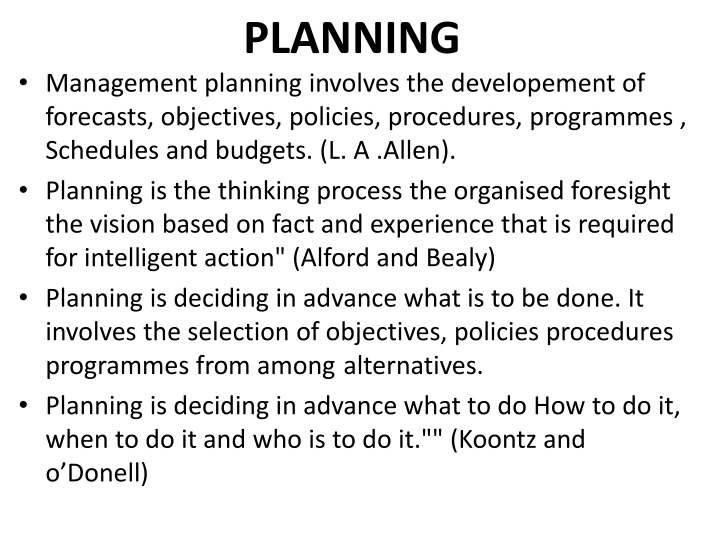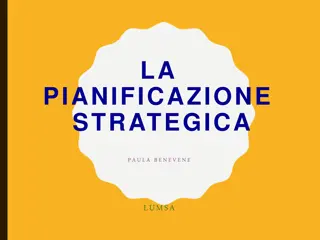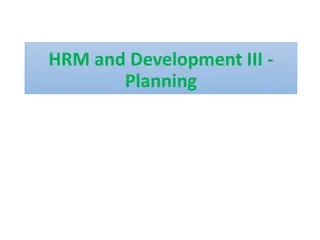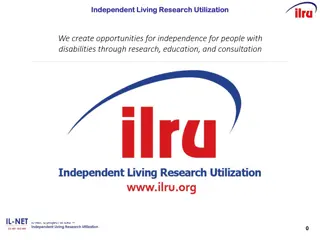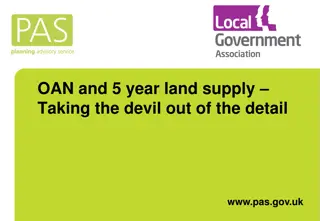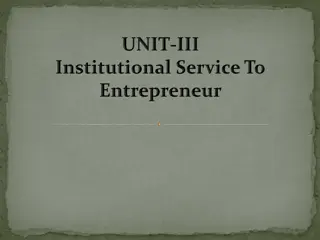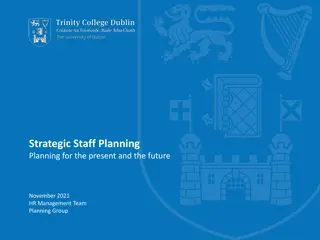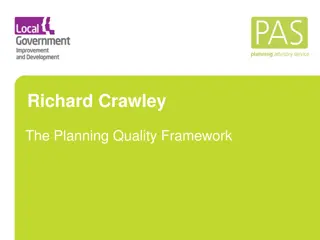Importance of Planning in Modern Organizations
Effective planning is crucial for organizations to thrive in dynamic environments. It provides direction, unifying framework, and economizes operations, ensuring efficient utilization of resources and coordinated efforts towards achieving goals.
Download Presentation

Please find below an Image/Link to download the presentation.
The content on the website is provided AS IS for your information and personal use only. It may not be sold, licensed, or shared on other websites without obtaining consent from the author.If you encounter any issues during the download, it is possible that the publisher has removed the file from their server.
You are allowed to download the files provided on this website for personal or commercial use, subject to the condition that they are used lawfully. All files are the property of their respective owners.
The content on the website is provided AS IS for your information and personal use only. It may not be sold, licensed, or shared on other websites without obtaining consent from the author.
E N D
Presentation Transcript
PLANNING Management planning involves the developement of forecasts, objectives, policies, procedures, programmes , Schedules and budgets. (L. A .Allen). Planning is the thinking process the organised foresight the vision based on fact and experience that is required for intelligent action" (Alford and Bealy) Planning is deciding in advance what is to be done. It involves the selection of objectives, policies procedures programmes from among alternatives. Planning is deciding in advance what to do How to do it, when to do it and who is to do it."" (Koontz and o Donell)
NEED FOR PLANNING The need for planning arises because of the fact that business organisation have to operate, Survive and progress is highly dynamic economy where change is the rule not the exception. The change may sudden and extensive or it may be slow and small. Some of the important forces for change may be change in technology, changes in Competition, changes in Government. etc." policies.
IMPORTANCE OF PLANNING Planning is an essential activity carried out in all organisations in the modern world. can achieve its goals without planning. Planning helps in determining the goals of and the activities needed to satisfy these goals. If organisations are operating on a with no feel of where they are heading, the results will be haphazard. It is like sailo rowboat. They feel helpless just sitting there, so they row, not having any idea where take them.
Planning helps an organisation in the following ways: Planning provides direction: Planning provides direction and a sense of organisation. Without plans and goals, organisations merely react to daily occurrences without considering what will happen in the long-run, Plans avoid this drift situation short-range efforts will support and harmonise with future goals. It helps an organisation what to do and when to do it. It reduces aimless activity and makes action. Planning provides a unifying framework: Planning forces people to continually efforts to the most important work rather than the least important. In the unifying focus on company objectives may be missing. A plan tells everyone what the organisation hopes to achieve and what the contribution of each department must be, and who is to utilise resources to achieve the goals. Plans serve as the basis of coordinating the efforts of different divisions, departments and people. Planning is economical: Effective plans coordinate organisational work and eliminate unproductive effort. Guess work is banished. Facilities are employed to the best advantage. Waste motions and idle facilities are removed. In the words of Koonts and O'Donnell, "Planning substitutes jointly directed efforts against uncoordinated, piecemeal activity, an even flow of work for an uneven flow, and deliberate decisions for snap judgements". By focusing attentionon what is to be done, how and when it is to be done, plans helps an organisation to utilise its physical and human resources in an economical way. This, ultimately, leads to efficiency of operations.
Planning reduces the risks of uncertainty: Planning helps an organisation to cope with an uncertain future. It helps management to anticipate the future and prepare for the risks by making necessary provisions to meet the unexpected turn of events. Planning enables a manager, in the words of Drucker, to affect rather than accept the future. In the absence of a plan, the organisation is much more likely to sit back and let things happen and then react to these happenings in a crisis mode. Planning minimises the chances of mistakes and unpleasant mrprises because objectives, policies and strategies are formulated after a careful scrutiny of internal as well as external environment. Planning, thus, seeks to minimise risk while taking advantage of opportunities. It keeps management alert to environmental changes, and manage the uncertain future in a useful way. Planning facilitates decision making: Decision-making involves searching of various alternative courses of action, evaluating them und selecting the best one. Planned targets serve as the criteria for the evaluation of different alternatives so that the best one may be chosen. If there are no plans for the future, there are few guidelines for making current decisions. For example, decisions have to be made in present for a product to be introduced three years in the future. When future plans exist, decisions consistent with the future plans are made. Further, without plans, people will make decisions according to their own preference rather than those of the organisation Planning encourages innovation and creativity: Planning involves looking ahead and preparing for the future. The process of looking ahead, forces an organisation to be alert of opportunities and threats in the environment. It forces managers to find out new and improved ways of doing things in order to remain competitive and avoid the threats in the environment. It compels the managers to be creative and innovative all the time. Planning helps managers to visualise
